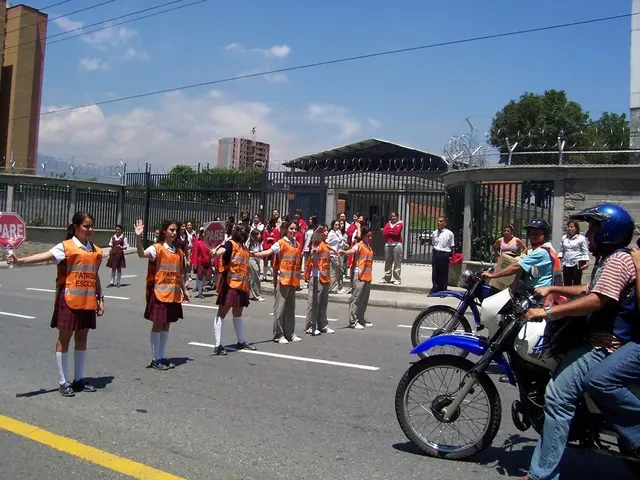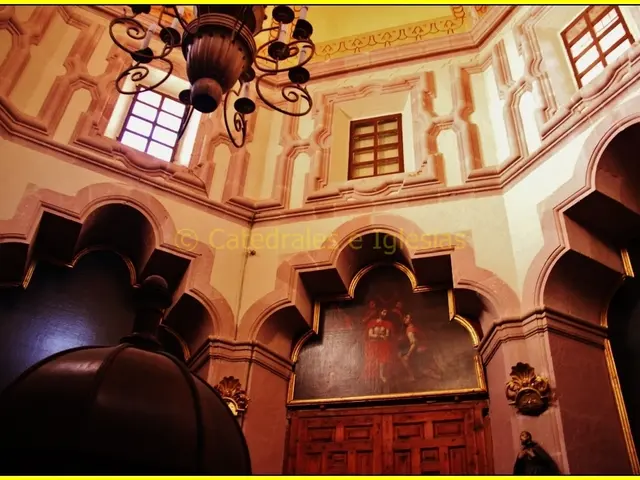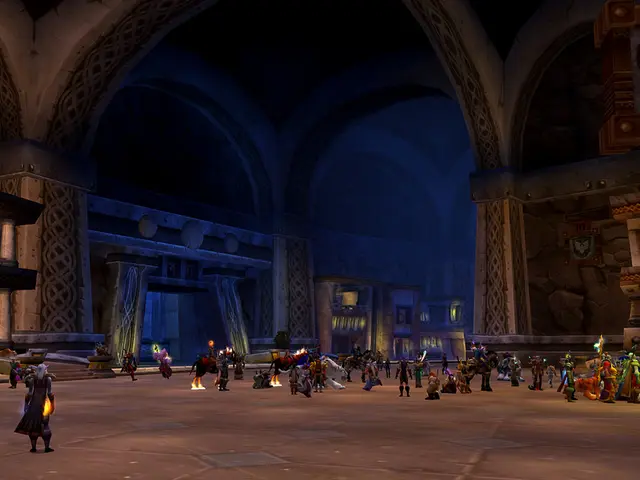Woman Coerced to Transfer Custody of Children to Pakistani Spouse at Attari Border
Meerut: The Heartbreaking Saga of Separated Families
In the bustling city of Meerut, a heartbreaking scene unfolds as an anguished Sana hands over her two young children, aged three and one, to her Pakistani husband at the Attari border. This poignant moment is a stark symptom of the deep rifts formed by India's recent visa policy changes towards its neighbor.
Married to a doctor hailing from Karachi, Sana, a resident of Meerut in Uttar Pradesh, finds herself heartbroken over the visa regulations that force her to part with her precious little ones. The family tragedy unfolds in the aftermath of the central government's decision to cancel Short-Term Visas of citizens from Pakistan residing in India, instigated by the gruesome terrorist attack in Jammu and Kashmir's Pahalgam that claimed the lives of 26 innocent civilians on April 22.
Enveloped by pain, Sana surrenders her three-year-old son and one-year-old daughter to the boundaries of Pakistan. The children, holding Pakistani passports, are torn away from their Indian mother amidst a storm of visa regulations.
Tearful and distraught, Sana queryingly demands, "I ask the government, why are mothers being separated from their children? What is my fault?" The grieving mother, an Indian citizen, had initially entered the country on a 45-day visa but cannot now return to Pakistan, as she has yet to be granted Pakistani citizenship.
She exchanged marital vows with Bilal, a resident of Karachi, in the year 2020. Sana anticipates that it may take another four years to acquire Pakistani citizenship, adding to her burdensome predicament.
Inspector Pratap Singh of the Saradha police station confirmed the situation, stating that Sana was instructed, as per the government directives, to return her children to Pakistan. Having completed the legal proceedings at the border, Sana has handed over her children to their father.
The latest wave of family separations can be traced back to the central government's decision affecting Pakistani nationals residing in India, primarily via visa restrictions. New guidelines dictate that only Pakistani nationals living in India on Long-Term Visas (LTV) are permitted to stay, while those on Short-Term Visas are being repatriated.
These measures, in response to the horrific Pahalgam attack, mark a decisive shift in India's security policy and have inadvertently disrupted the lives of families like Sana's. The process of sending back Pakistani nationals was set in motion following the government's decision after the Pahalgam attack, according to officials.
[1] Historically, this tense border has been the location of numerous emotional reunions and heartbreaking separations caused by political unrest and regulation changes. [2] The latest round of visa restrictions underscores the profound impact that government decisions can have on individuals, tearing apart families and creating emotional turmoil for those caught in the crossfire. [3] These measures, while intended to protect national security, have unintended consequences for innocent families seeking to maintain their relationships.
(Except for the headline, this story has not been edited by our website staff and is published from a syndicated feed.)
[1] Every few months, the tense border between India and Pakistan becomes a stage for heartbreaking scenes of family separations, stemming from political unrest and legislative changes.
[2] The recent visa policy modifications within India are causing profound distress for families like Sana's, who are being forced apart due to the cancellation of Short-Term Visas for Pakistani citizens.
[3] As a result of these adjustments, the lives of innocent children, such as Sana's three-year-old son and one-year-old daughter, are being disrupted needlessly, making politicians question the fairness of these policy-and-legislation decisions.
[4] In the world of general-news and crime-and-justice, such situations serve as a reminder of how decisions rooted in politics can have far-reaching, unintended consequences that invariably ripple through the lives of common people, tearing families apart and creating inconsolable grief for those affected.








